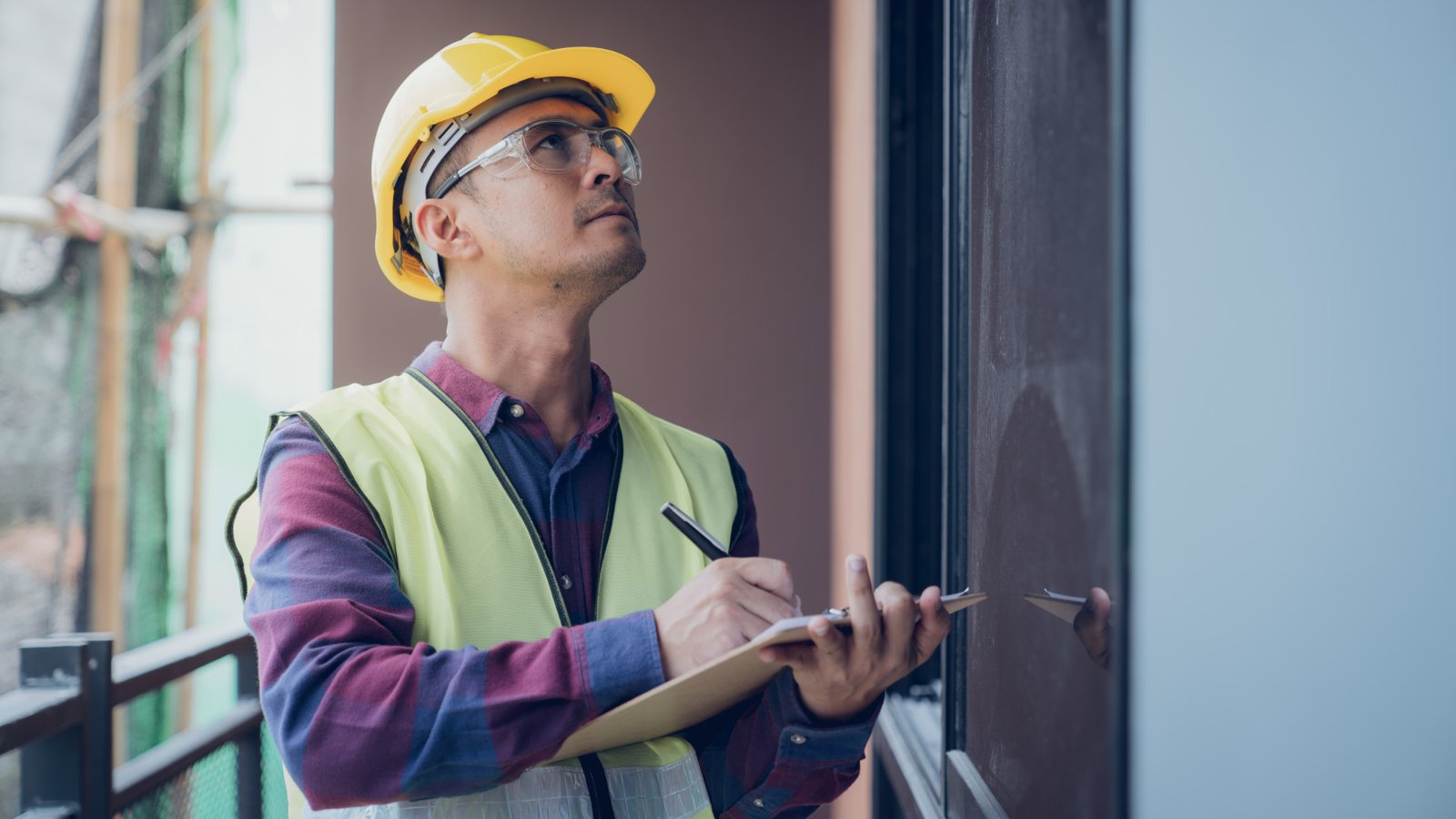How Long Does A Building Inspection Take: A Complete Guide

Overview
When considering the purchase of a property or assessing the condition of an existing structure, a building inspection emerges as a critical step in safeguarding your investment and ensuring safety. The duration of a Building inspection Pakenham can vary widely based on several factors, which this guide aims to elucidate.
Through this comprehensive exploration, we aim to arm you with the knowledge to plan for and understand the building inspection process effectively.
Understanding Building Inspections:
A building inspection is a detailed assessment conducted by a certified professional to evaluate the condition of a property. Its primary purpose is to identify any existing or potential issues that could affect the safety, functionality, or value of the property.
Inspections can range from pre-purchase evaluations, ensuring buyers are aware of what they’re investing in, to construction phase checks that guarantee new builds meet regulatory and safety standards.
Inspectors examine structural integrity, electrical systems, plumbing, and even pest infestations, providing a comprehensive overview of the property’s condition.
Factors Influencing Inspection Duration:
Several factors can influence the time it takes to complete a building inspection Pakenham process. Here’s a closer look at these elements:
- Size and Complexity of the Property: Logically, a larger property with more rooms and complex features such as pools or outbuildings will take longer to inspect than a small apartment. Each area requires a thorough examination to ensure no detail is overlooked.
- Age of the Building: Older properties often harbour more problems due to the wear and tear of materials over time and the use of outdated construction techniques. Inspectors might spend additional time assessing these buildings to provide a comprehensive report.
- Type of Inspection: Different types of inspections require different focuses. For example, a pest inspection might be quicker than a full structural inspection, which needs detailed attention to various components of the building.
- Condition of the Property: A well-maintained property can often be inspected more quickly than one with visible damage or neglect, as fewer issues need to be documented and assessed.
Average Duration of Building Inspections:
While the duration of an inspection can vary, general guidelines can help set expectations:
- Small apartments or homes might require 1-2 hours.
- Medium-sized homes could take approximately 2-4 hours.
- Large homes or commercial properties may need 4 hours or more, depending on their size and complexity.
Keep in mind that these are estimates; each property is unique, and special circumstances may extend these times.
Preparing for a Building Inspection:
Preparing for an inspection can streamline the process. Ensure access to all areas of the property is clear and unobstructed, and consider compiling documents related to the property’s history, repairs, and any warranties.
This preparation not only aids the inspector but can also help reduce the inspection time by ensuring a smooth process.
What Happens After the Inspection?
Following the inspection, you will receive a detailed report outlining the findings. This report is crucial for understanding any issues that need addressing, whether they’re immediate safety concerns or areas to monitor over time.
For buyers, this report can serve as a negotiation tool, while for homeowners, it provides a roadmap for maintenance and repairs.
Choosing the Right Building Inspector:
Selecting a qualified and experienced building inspector is paramount.
- Certification and Credentials
When embarking on the quest for the ideal building inspector, prioritising their professional certifications is crucial. A reputable inspector should possess accreditation from recognised industry organisations, ensuring they adhere to a stringent code of ethics and standards. This accreditation acts as a testament to their expertise and commitment to quality in the building inspection industry.
- Experience Matters
Experience is a cornerstone in the realm of building inspections. Seek out inspectors with a wealth of experience, particularly those who have previously dealt with properties akin to yours. An inspector’s ability to draw on past inspections enhances their capability to identify potential issues and provide valuable insights, making their experience an invaluable asset in assessing a property’s condition accurately.
- Solid Reputation
The reputation of a building inspector speaks volumes. Delve into reviews and testimonials from previous clients to gauge their satisfaction levels and the quality of service provided. A building inspector with a solid reputation is likely to deliver thorough and reliable inspection services, offering peace of mind in your decision-making process.
- References and Testimonials
Don’t shy away from requesting references. Speaking directly with past clients offers a candid glimpse into the inspector’s work ethic, attention to detail, and customer service orientation. These firsthand accounts can significantly influence your choice, ensuring you select an inspector whose expertise and manner align with your expectations.
- Specialisation and Familiarity
Lastly, consider the inspector’s familiarity with your type of property. Inspectors who specialise or frequently work with similar properties are more likely to understand the specific challenges and common issues that may arise. This specialised knowledge is crucial for a comprehensive and insightful inspection, ensuring that no stone is left unturned.
Look for a professional building inspection Pakenham company with certifications and a solid reputation. Don’t hesitate to ask for references and question them about their experience, particularly with properties similar to yours.
Building Inspection Tips for Homebuyers and Property Investors
Navigating the world of property investment or homebuying is no small feat, especially when it comes to ensuring the safety and value of your potential new home or investment.
Building inspections play a crucial role in this process, offering insights that can save you from costly mistakes.
Here are essential tips to maximise the benefits of building inspections:
- Understand the Scope of Your Inspection: Before anything else, clarify what your building inspection will cover. A standard inspection typically includes an assessment of the structure, roof, foundation, plumbing, electrical systems, and potential pest infestations. Knowing the scope helps set your expectations and ensures you’re aware of any additional inspections you might need.
- Choose the Right Inspector: Not all inspectors are created equal. Look for a licensed, experienced professional with a solid track record in inspecting properties similar to the one you’re considering. Ask for certifications, insurance, and references to ensure you’re getting a thorough and unbiased inspection.
- Be Present During the Inspection: If possible, attend the inspection. This gives you a firsthand look at any issues the inspector identifies and allows you to ask questions on the spot. It’s an invaluable learning opportunity about the property’s condition and maintenance needs.
- Review the Report in Detail: Once you receive the inspection report, take the time to go through it carefully. It should be comprehensive, with descriptions and photographs of any defects or potential problems. Don’t hesitate to ask the inspector for clarification on any points you don’t understand.
- Prioritise Safety Issues and Major Defects: The inspection report might list numerous issues but focus on safety concerns and significant defects first. These are non-negotiable and should be addressed immediately, whether through negotiation with the seller or by planning for repairs if you proceed with the purchase.
- Use the Report for Negotiation: Armed with the inspection report, you can negotiate with the seller on price adjustments or request repairs before finalising the purchase. Sellers are often willing to accommodate reasonable requests, especially if they’re eager to close the deal.
- Plan for Future Maintenance: The inspection report can serve as a blueprint for future maintenance. Use it to budget for repairs and upgrades down the line. This proactive approach can save you money and headaches, ensuring your property remains in top condition.
- Don’t Skip Specialty Inspections: Depending on the age, location, and type of property, consider specialty inspections for issues like radon, asbestos, or mould. These are typically not covered in a standard inspection but can have significant health and financial implications.
- Remember, No Property is Perfect: Even new constructions can have defects. The goal of the inspection isn’t to find a flawless property but to avoid unpleasant surprises. Use the information to make an informed decision, understanding that some issues can be fixed and others might be deal-breakers.
- Consider Inspection Clauses in Your Contract: To protect yourself, include an inspection clause in your purchase agreement. This gives you a way out of the contract if the inspection uncovers significant defects that cannot be resolved satisfactorily.
Conclusion
In conclusion, understanding the duration of a building inspection Pakenham is crucial in planning and decision-making for any property transaction or maintenance.
While the timeframe can vary based on the size, age, and condition of the property, as well as the inspector’s thoroughness, knowing what to expect can alleviate stress and ensure preparedness.
Remember, a comprehensive inspection is an invaluable investment in the longevity and safety of your property.
Choosing a qualified inspector and understanding the process can significantly influence the outcome.
Armed with this knowledge, you’re now better equipped to navigate the intricacies of building inspections, making informed decisions for your property’s future.
Related Posts

The Ultimate Guide to Property Valuation: Understanding the Basics

Safeguarding Investments: The Importance of Property Management

